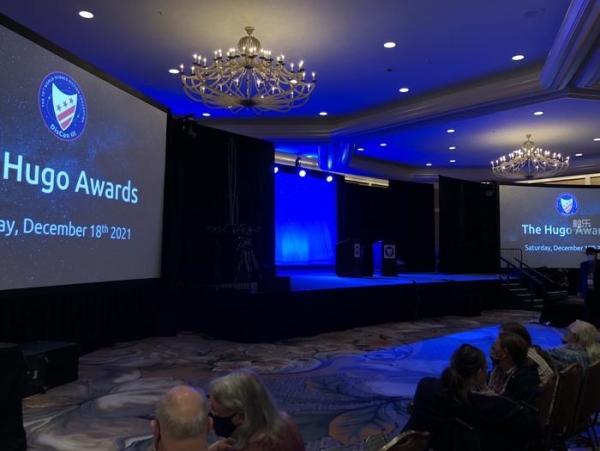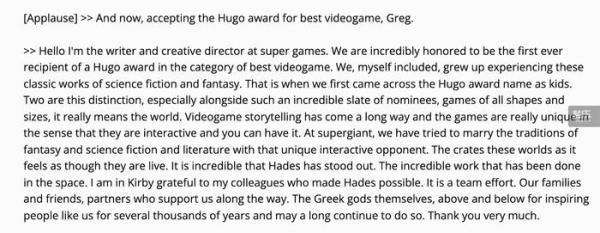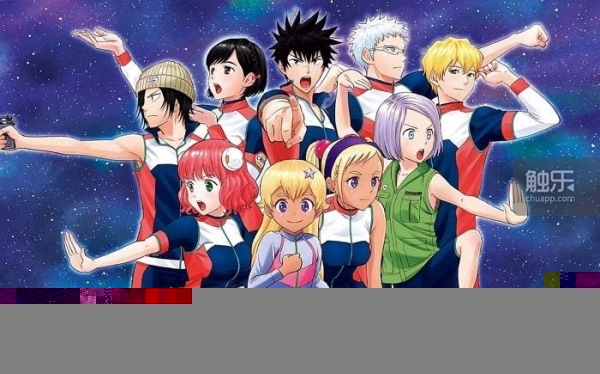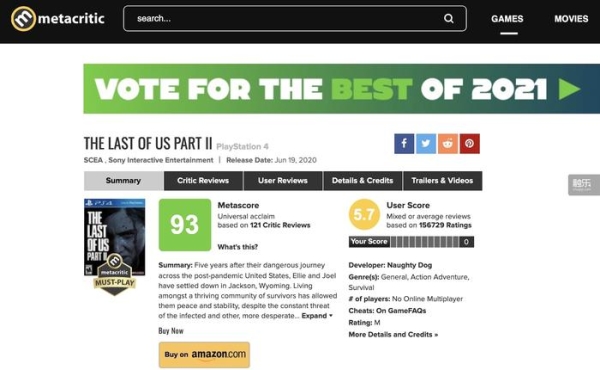"Hades" Wins a Hugo Award: Talking About Awards, Ratings, and Player Voices
Text/Yang Zongshuo
On December 19, 2021, Beijing time, the Hugo Awards, the most important awards in science fiction, announced the list of winners this year. The novel "network effects" by American author Martha Wells won the "Best Novel" award. In addition, "The Queen of Salt and Fortune" won the "Best Novel" award, "Two Truths and a Lie" won the "Best Short Story" award, and "Metallic Blood in the Dark" won the "Best Short Story" award. The "Best Story Series" award went to another work by Martha Wells, "Diary of a Killing Robot". But most notably for the gaming world, the Hugo Awards added "Best Game 2021," which went to "Hades," along with nominations for "Assemble!" Animal Crossing, "The Last of Us: Part 2," Final Fantasy 7: Remastered, "" Soul Ferryman, "and" Blaseball, "which Touch followed in April.
The Hugo Awards are an established science fiction award and the most prestigious in science fiction. Named after Hugo Gensbach, the founder of "Amazing Stories" and the father of modern science fiction, the first Hugo Awards were presented at the 11th World Science Fiction Annual Conference in 1953. In 2021, the Hugo Awards decided to establish a temporary one-year game award, "Best Game of 2021."

According to Colette Fozard, co-chair of the 79th World Science Fiction Convention, which administers and awards the Hugo Awards, "many of us have spent more time playing games than we expected since the beginning of 2020," and the Games Awards were created to "give people an opportunity to reward meaningful, enjoyable and special games from the past year."
So far, this game award has only been decided for one year. Considering that some of the games in the nominations have little to do with science fiction and fantasy, we prefer to understand it as a recommendation from the Hugo Award judges. Whether the final award of "Hades" has more to do with fantasy, or whether the judges spent more time on this Roguelike game, we may never know.
In addition to the Hugo Awards, another traditional science fiction award, the Nebula Awards, has also taken a positive attitude towards game awards. The Nebula Awards have established the "Best Game Writing Award" starting in 2019, which is intended to reward creators who create narratives in science fiction games. In the first year, the awards went to "Black Mirror: Pandasniki", in 2020 to "Outer Worlds", and this year to "Hades" – in a sense, "Hades" is also a "double winner" of the Hugo Award and the Nebula Award.

At first, the Hugo Award and the Nebula Award were both awards for science fiction. The former only established a "Best Novel" award for the first time, which was given to Alfred Best’s "The Destroyed Man". The latter established four sub-awards under the "Best Novel" project, which were judged according to "long story", "novella", "short story" and "super short story". The first "Best Novel" award was given to the novel "Dune", which was brought to the big screen again this year.

In the following years, the awards have also been constantly changing. In the more than ten years since the launch of the Hugo Awards, the awards for "Best Novella", "Best Short Story", "Best Short Story" and "Best Dramatic Performance" and "Best Fan Magazine" have been added. In 2009, the "Best Picture Story" award was added to honor outstanding science fiction comics.
The Nebula Awards added the "Best Screenplay" award in 1974, the "Andre Norton" award in 2006 for outstanding, adolescent-facing science fiction, the "Ray Bradbury" award for theatrical performance added in 2010, and the "Best Game Writing" award added in 2018. We can see that as the creative format evolves, the awards continue to evolve. Novels, plays, comics, games, any creator who loves science fiction may win trophies in these halls.
The inclusion of games in the selection of science fiction awards is a good thing. Today, the influence of games is expanding year by year, and the market and audience are not the same as they were a few decades ago. The creation in the game deserves to be seen by more people – like "The Thirteenth Army Defense Circle" is a rather excellent science fiction work, and it was indeed nominated by the 51st Japan Nebula Awards. This news inspired many game fans at the time. Along with "The Thirteenth Army Defense Circle", the animated film "Astra on the Other Side" was nominated, the animated film "HELLO WORLD", "Promia", "Children of the Weather", the theatrical version of Shinkansen Warrior: Speed ALFA-X from the Future "and the movie" Godzilla 2: King of the Monsters "and" Fly! Saitama ". Movies, animations, animated films and games all rolled into one of science fiction’s traditional awards, giving a sense of "different media, but we’re all doing the same thing." The way art is created rotates over time, but the spirit of the work is always the same.

In fact, whether it is the Grammys or the Oscars, "academics" always hold the key position of the awards, and people are more willing to believe in an academic award, but there is no common academic standard in the field of games. The closest is the "Game Developers’ Choice Awards" presented by the "Game Developers Conference" GDC every year, but this award is not as popular as the Grammys and Oscars – the most high-profile award in the game industry is the "Game Awards" TGA, a business award selected by people in the media.
In recent years, the credibility of TGA’s awards has also declined. The 2020 award of "The Last of Us: Part 2" was the pinnacle of public skepticism at TGA. From this perspective, we are both skeptical of the selection of commercial awards and confused by the public’s "expression of love or dislike for unplayed games." At present, the selection of awards – at least the selection of game awards – is more or less controversial, and I prefer to think of these awards as "recommendations for some excellent works" rather than "really spell out a first place."

From this perspective, the game awards established by the Hugo Awards and the Nebula Awards were easy to understand. They recommended good works to people in a relatively peaceful way, and were backed by the reputation and credibility accumulated over decades. The only thing that was a little risky was that it seemed to consume a little bit of the credibility of the Hugo Awards, and a serious fiction award would also be seen as "recommending a game we like by the way."
It would not be a bad thing to have a delicate balance in it, and even to have a game on the long list for the Hugo Awards – but in terms of game design, are the Hugo award selection committees competent enough to choose a good game? Will they put too much emphasis on plot performance and neglect gameplay? To put it bluntly, if we really want to award awards, we need to birth a video game academic community, or even come up with a set of quantifiable standards – which is not necessarily a good idea. In the academic-dominated film and music fields, people are increasingly skeptical of film critics and music critics, and some "money-stuffing" deals have made them less trustworthy than they used to be. The gaming industry has not yet developed to the level of academic dominance, but players’ skepticism still pervades every corner of the industry.
Is the player’s voice credible enough? Not really, Metacritic, a well-known game rating website, has caused a lot of controversy before. In 2020, the media ratings and player ratings of The Last of Us: Part 2 were polarized, with many media giving a high score of 94/100, while the player’s voice averaged only 4.6/10 points. Objectively speaking, I can understand the voice of players who don’t like it, but 4.6 is obviously too low for a game like this. Looking at it today, the player rating of this game has become 5.7 – still unqualified, but gradually rising.
In short, whether it is awards, scoring or player voices, we all have urgent problems to solve. If these awards are really needed, perhaps the voice from the academic community is indispensable. Before that, everything can only grow savagely and make everyone believe what they want to believe.